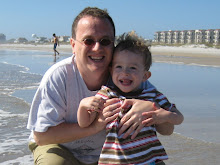We did experience some real danger living in Nigeria. Not that we experienced all that much first hand. Well, aside from the gunshots I heard right outside our hotel in Lagos. And that one other time we heard gunshots while sitting in our house one night.
There is always danger where there is significant poverty mingled with a small percentage of the population willing to use violence or other wicked devices to try to improve one’s station.
I was told I should always lock the car doors while traveling. Always keep your money hidden from sight. Never speak about money in public. Do not carry more than $50 or $60 with you at any time. Never travel alone to change money. Do not make any other stops after you change money, but rather, go straight home. Keep any money that you have at home in a secret, safe place (cue Gandalf “keep it secret, keep it safe”).
For the most part I was good about all of these things. Except locking the car doors. One out of every three or four trips Stephanie would have to remind me to lock the car doors. And there were certainly other times that I forgot…
As I think we’ve mentioned, there were no fewer than six security measures for our home: Locked gate (tho’ it was never “locked” I don’t think), compound guard, watchdog, outside padlock, bars on the windows, a main door deadbolt, a padlocked gate across the back door and dead bolts and skeleton key locks on all room doors.
And that’s just our general physical and financial security while in our home and traveling in our home city of Enugu. Healthwise, and traveling outside of Enugu, there is another entire set of rules and guidelines for recommended safety.
The U.S. Mission employees here in Nigeria (i.e., the embassy people, U.S. diplomats living in Nigeria) do not travel to Abia state without a whole host of extra security measures. See, you can get kidnapped, held for ransom, mainly. Twice while we were here, I traveled to Abia state. Certainly, it’s not as dangerous as, say, Akwa Ibom, Rivers, or Delta states… those are the really dangerous ones. And certainly not as dangerous as Iraq or Iran or North Korea. Pakistan, Afghanistan, or Saudi Arabia would carry a whole new set of risks. Not to mention living in Lagos… I don’t even want to think about it! But there are certainly a number of places in North America that would be equally if not more dangerous…
One time we were in Abia state, the host pastor had arranged (unbeknownst to us aforetime) a security detail for us. We had two or maybe three armed policemen nearby the whole time we were there.
On the road the police checkpoints are really unnerving. You never know when they’re going to ask for a bribe (or “dash” as they call it here) and Bro. McLean has never been interested in paying up. One time and only one time there was a policeman who asked us for money. (This is out of something like 35 or 40 such checkpoints I have been through). That is not to say that the checkpoints always proceed without incident. Twice we were hung up to check the paperwork on the tinted windows (long story) and another time we experienced a verbal dressing down (for who knows what) and then there was another time they wanted to see the paperwork for the vehicle and then one other time to check my fire hydrant. I really hate the checkpoints.
I guess the only other major worry for us has been disease. To be a little more specific, malaria is the main concern. I haven’t been concerned for myself. You get malaria, you take the drugs, most of the time no problem. Untreated, malaria can have a high fatality rate. And when you bring a three year old into a country where the medical facilities are not nearly as reliable as the ones back in the U.S., you tend to worry a whole lot more about even the smallest of potential problems. But I will bring my focus back to malaria, specifically.
“Each year, there are approximately 350-500 million cases of malaria, killing between one and three million people, the majority of whom are young children in Sub-Saharan Africa. Ninety percent of malaria-related deaths occur in Sub-Saharan Africa” (Wikipedia).
The anti-malarial meds we take are reported to be 90% effective. So one out of every ten mosquito bites from malaria carrying mosquitoes could effectively transmit malaria to one of us. Thankfully we have been pretty careful and have not been bitten too many times. But it seems like every week there is someone at the school who is sick, presumably with either malaria or typhoid, two of the most common diseases here. It seems that everyone gets one or the other some time. We have been extremely careful with water and food and still both Stephanie and I have experienced a day or two’s worth of illness.
We have learned whole new levels of trusting God while we have been here.


No comments:
Post a Comment